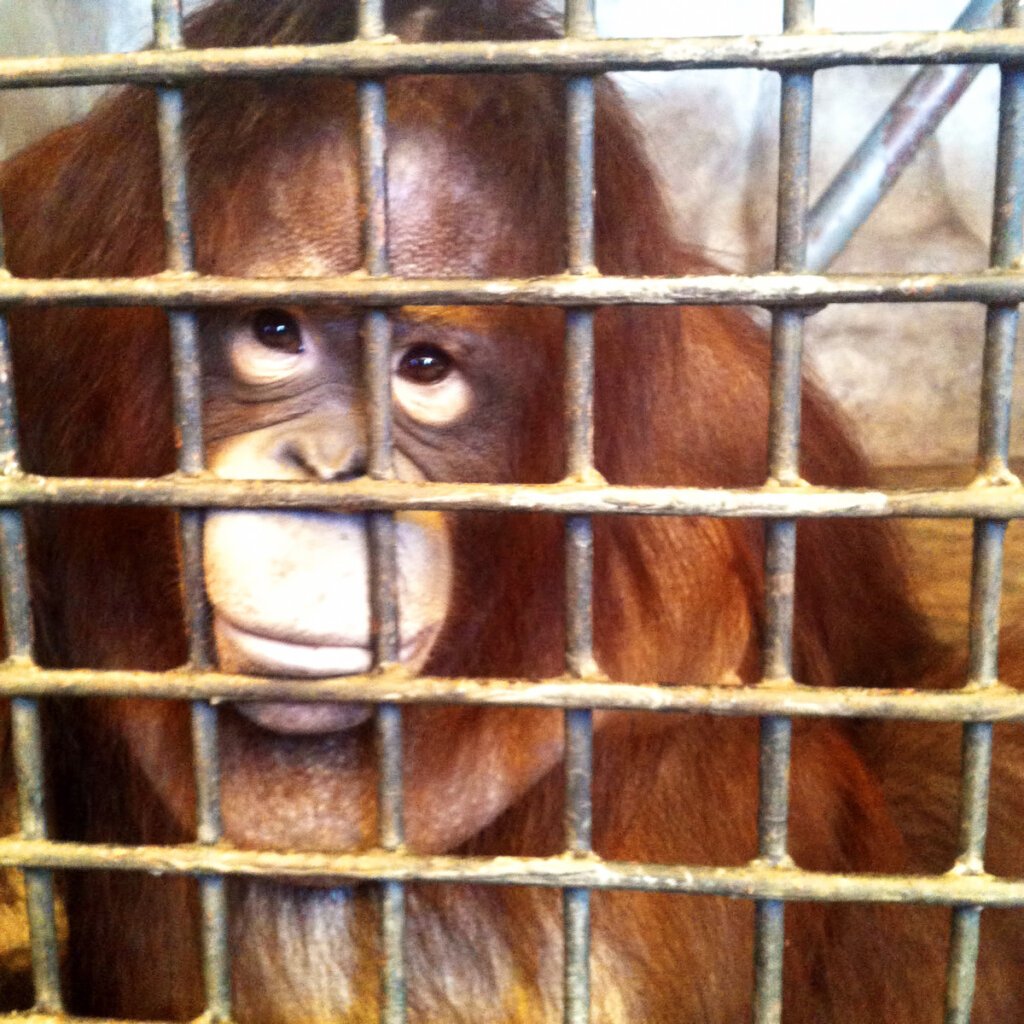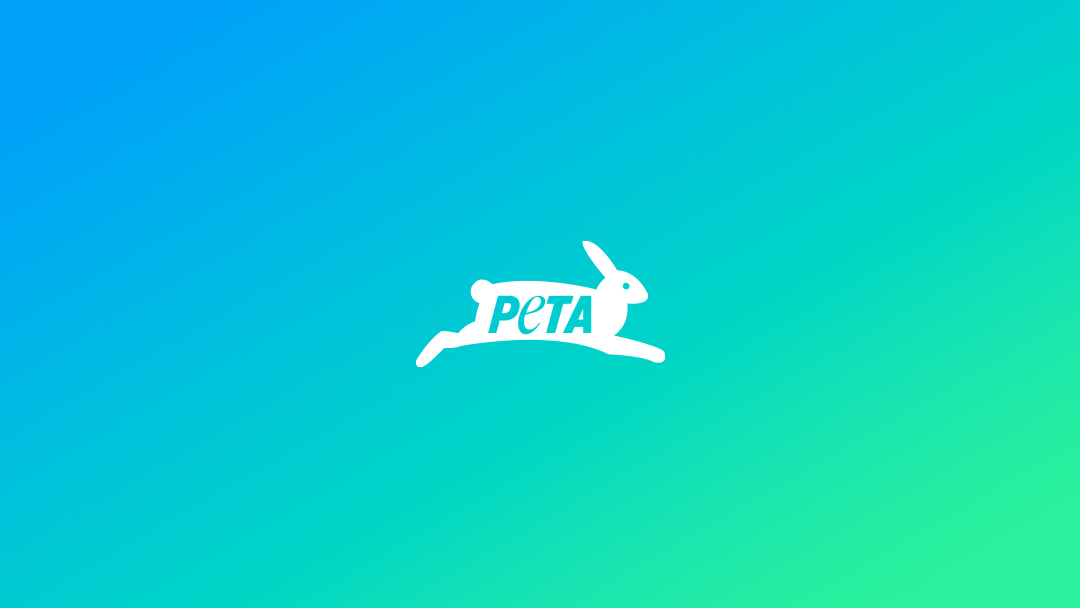
There’s No Sport in Horse Racing
Although a “day at the races” might seem like harmless fun for attendees, it’s anything but for the “stars” of the show – horses used for racing routinely sustain injuries and die both on and off the track and are victims of an industry rife with drug abuse and race-fixing. Many end their careers at the abattoir.
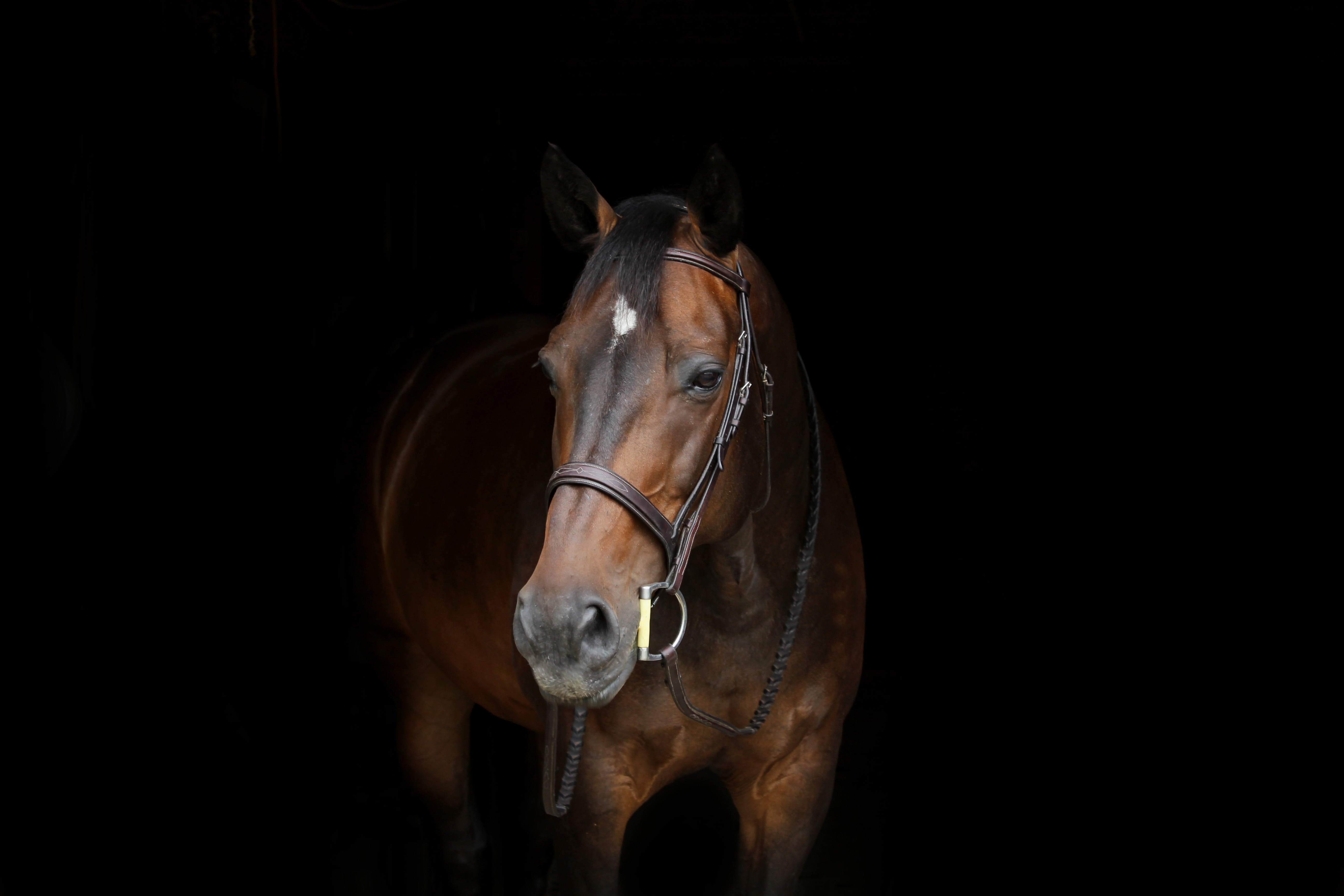
Bred for Bets
Horses exploited for racing are bred in the hope that their offspring will be fast – and often this comes at the expense of good health. Foals earmarked for racing will be torn away from their mothers, known as brood mares, as early as 6 months old so the gruelling process of “breaking” the animals can begin.
Brood mares are nothing more than breeding machines to their owners and spend as much as 90% of their lives enduring a cycle of forced pregnancy and subsequent removal of their young from their side. When the mares are no longer able to reproduce, they’re usually killed.
Of course, not every horse bred to race is fast enough. The term “wastage” refers to both bred-to-race Thoroughbreds who never step hoof on a racetrack and those whose racing careers have ended. Those who aren’t used for breeding or sold are slaughtered or sent overseas, where investigations have revealed almost unthinkable cruelty.
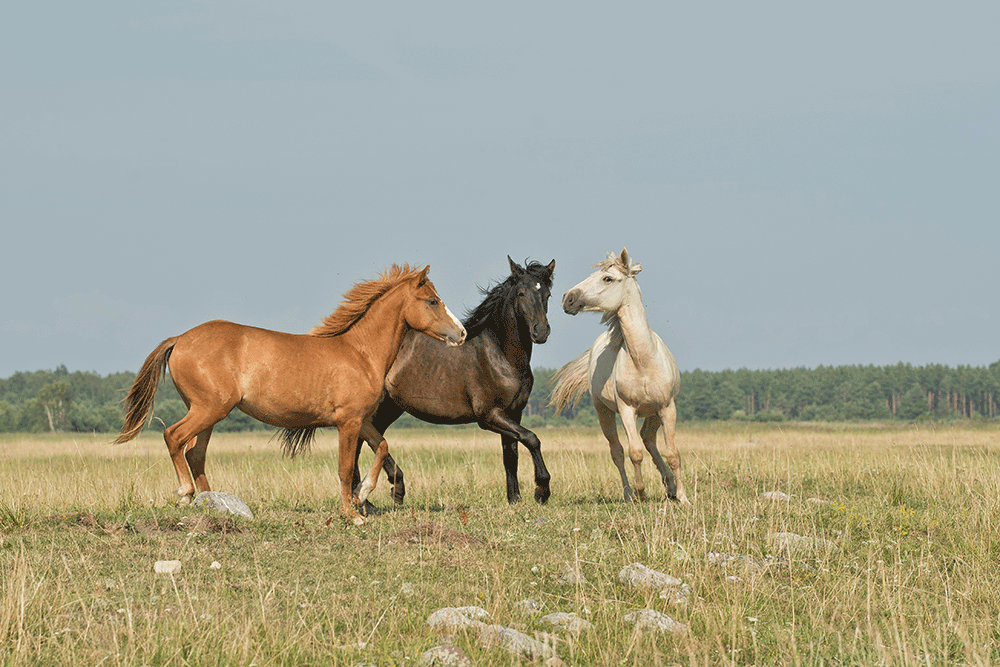
Born to Run – Not to Race
Horses weigh more than 500 kilograms, are supported by ankles the size of a human’s, and are whipped and forced to run around tracks that are often made of hard-packed dirt at speeds of more than 50 kilometres per hour – all while carrying riders on their backs, often while being struck repeatedly, and sometimes with their tongues tied.
Horses begin training – or are already racing – while their skeletal systems are still growing and are unprepared to handle the pressures of competitive running on a hard track at high speeds. Most horses are raced at 2 or 3 years old, but some will race at just 1 year and 9 months old, which sets them up for injury and death.
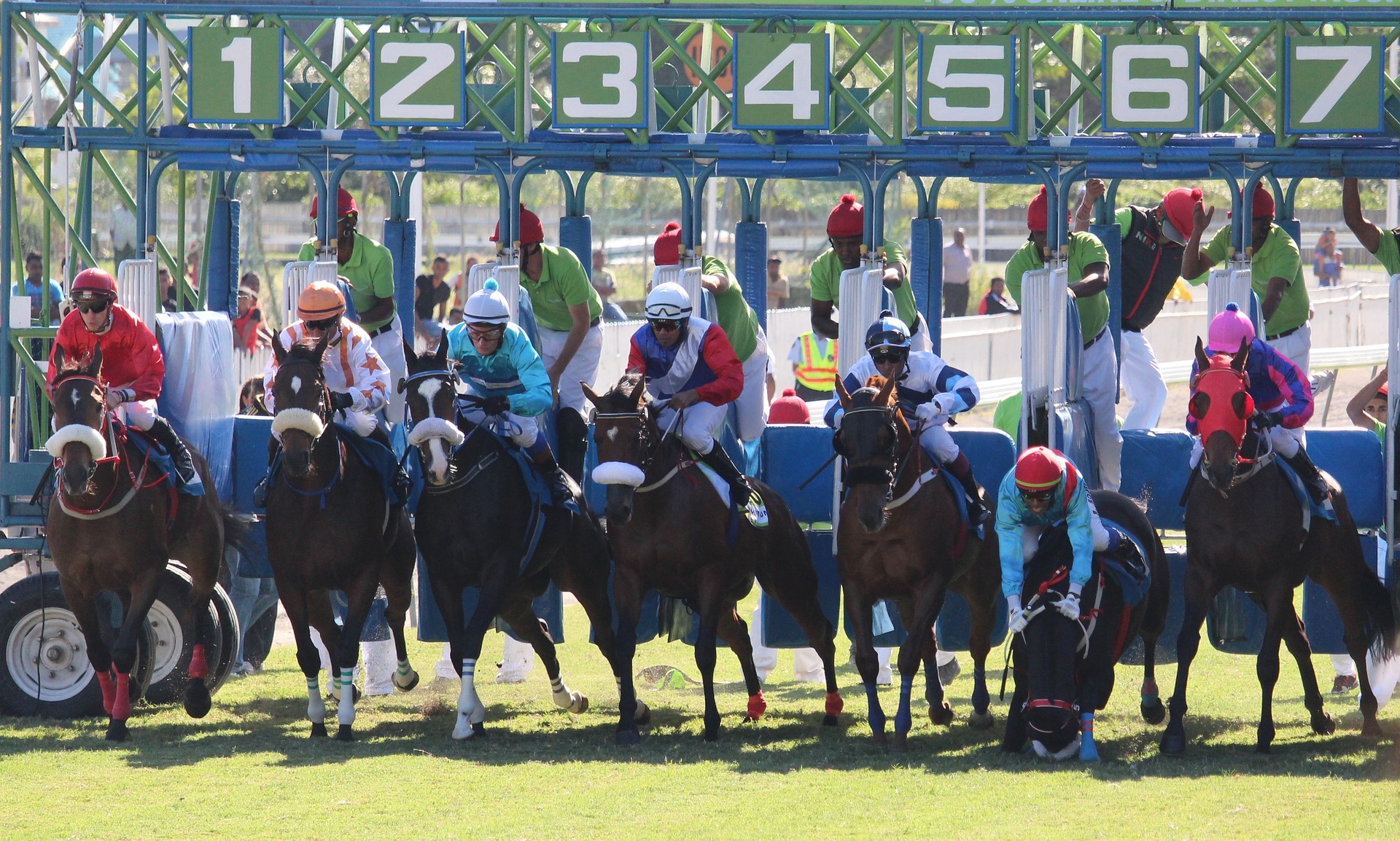
Horse Injuries Are Often Fatal
Pushing horses beyond their limit takes its toll.
Strained tendons or hairline fractures can be tough for veterinarians to diagnose, and the damage may progress from minor to irreversible within one race or workout.
Horses don’t handle surgery well, and many who can no longer race are euthanised or sold at auction to save the owners further veterinary fees and other expenses.
Few horses survive catastrophic injuries on the track, but even “minor” injuries, which could heal with treatment, often prove fatal after a race is over, simply because it’s not financially desirable for trainers and owners to invest in horses who may never earn again.
Many horses are overmedicated to keep them racing when they should be recuperating from injuries, making them vulnerable to breakdown.
Humans Bet – Horses Die
The Coalition for the Protection of Racehorses has collected data from official race-day reports and found that at least 149 horses were killed on Australian racetracks between 1 August 2020 and 31 July 2021. This means one horse dies every 2.5 days there.
Of course, countless horses are taken away from the racetrack and killed, but there’s no accurate or transparent lifetime traceability system for these animals.
Horse Retirement?
The racing industry talks about “retirement”, but few racehorses are retired to pastures. Most owners don’t want to pay for an animal who doesn’t bring in money, so many horses end up at abattoirs that supply the pet-food industry or in countries such as France and Japan, where horse meat is sold for human consumption.
A 2020 investigation by Farm Transparency Project followed the fate of former racing Thoroughbred and Standardbred horses to two Sydney knackeries, where hidden cameras captured their slaughter and sale as food for companion animals. Many of the horses seen there were officially listed as “retired” on the Racing Australia website. And in 2019, ABC’s7.30 programme revealed that around 300 horses used for racing went through a single abattoir in Queensland in just 22 days.
Horses exported overseas for racing can also end up in abattoirs. A PETA exposé revealed that Australian horses sold to the South Korean racing industry usually end up being slaughtered for meat.
Horses who are sent to these facilities often endure days of transport in cramped trailers. In Australia, they’re subject to the same slaughter method as cows, but because horses are generally not accustomed to being herded, they tend to thrash about in an attempt to avoid being shot by the captive-bolt gun that’s supposed to render them unconscious before their throats are cut.
An Industry Rife With Scandal
Horse racing is about one thing: money. Greed often drives trainers, owners, and jockeys to do whatever it takes to win.
In 2019, Darren Weir, one of Australia’s top trainers, received a four-year ban from racing after he was found to be in possession of a “jigger”, an illegal electric device used to jolt horses into running faster.
Drug use is also widespread, and horses are doped with a variety of substances, from caffeine to anabolic steroids.
Whipping Horses Is Animal Abuse
Even methods that aren’t outlawed, such as whipping, are cruel and abused by industry players. 2019 Melbourne Cup winner Vow and Declare was photographed with visible whip welts following the race.
In that same race, the rider of Prince of Arran (who placed second) was suspended and fined $10,000 for breaching the whip rule and a 5-year-old horse named Rostropovich sustained a pelvis fracture mid-race. All this suffering occurred in one three-minute period.
The industry claims to regulate against “over whipping” – but because a horse’s skin is just as sensitive as that of a human, any amount of whipping causes pain.
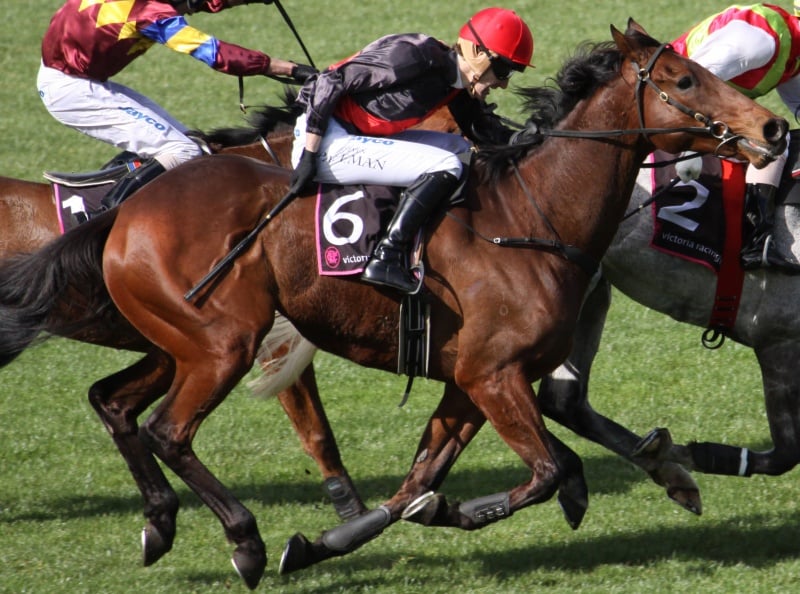
Help Horses Now
Every time you support horse racing – whether you’re placing a bet or going for the fashions on the field, you’re gambling with a horse’s life. Help phase out this exploitative “sport” by refusing to patronise existing tracks, lobbying against the construction of new ones, and informing your friends and family about the tragic lives that racehorses lead.
Animals Used for Entertainment:
Zoos | Circuses | Rodeos | Jumps Racing | Fishing
Help Animals in 2025: Renew Your PETA Membership!
